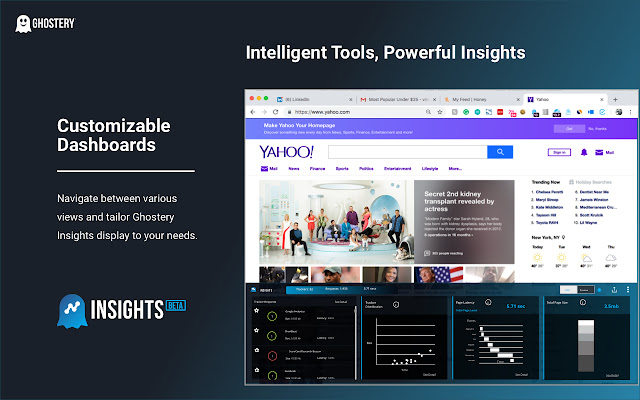
How Do Prop Traders Get Paid?
You’ve probably seen those flashy ads — “Trade our capital, keep the profits!” or “Your skills, our money.” It sounds almost too good to be true. So let’s pull the curtain back and talk about how proprietary (prop) traders actually make money, why firms pay them the way they do, and what this means if you’re thinking about stepping into the world of high-speed decisions, risk management, and market psychology.
What Prop Trading Really Is
Prop trading’s a simple concept at its core: you’re trading with the firm’s money, not your own. If you’re good, you get a cut of the profit. When you’re bad… well, the firm takes the hit — but you might find yourself looking for your next gig. It’s like being a poker player backed by a sponsor, except instead of cards, you’re dealing with forex charts, equity volatility, or crypto order books that move faster than your morning espresso kicks in.
Firms do this because hiring skilled traders gives them access to upside without locking up huge human and tech resources in-house. You’re the talent. They’re the bank. Both sides want that win.
How the Pay Structure Works
Prop traders usually don’t get paid “like employees” in the traditional sense. Their compensation is more performance-driven than a base salary. Common models include:
Profit Split – Say you make $50,000 for the firm in a month. Depending on the split, you might pocket 50–80% of that as your payout. Higher splits usually come after proving yourself over months or years — think of it as leveling up in a video game, except the loot is actual cash.
Draw Against Profits – Occasionally, a firm pays you a small regular draw, like $2–3k monthly, which is later deducted from your profit share. It’s not a salary; it’s more like an advance so you can focus on trading rather than worrying about rent.
Scaled Payouts – Firms sometimes tie payout percentages to net profit thresholds. Hit $10k? You’re at a 60% split. Hit $30k? Maybe they bump you to 75%. This keeps you hungry but also rewards consistency and risk control.
The Assets in Play
Prop traders work across multiple asset classes:
- Forex: High liquidity, trade around the clock
- Stocks & Indices: Company earnings, macro trends, index rebalancing
- Crypto: Wild volatility, DeFi platforms, a playground for 24/7 action
- Options: Strategic plays with defined risk/reward
- Commodities: Oil, gold, agricultural products — affected heavily by geopolitics
Each has its own style and rhythm. Some traders thrive in the tick-by-tick intensity of Nasdaq futures, others in the calculated patience of swing trading major forex pairs.
Skills that Drive Bigger Checks
The fastest path to serious earnings in prop trading? Consistency. Firms crave traders who:
- Control drawdowns (protect firm capital like it’s your own)
- Adapt to new conditions (bear market, bull run, sideways chop)
- Leverage tech — from algo scripts to AI-assisted signal analysis
- Understand macro events and micro triggers
The trader who wins isn’t always the one with the highest single-month profits, but the one who can stay profitable across economic climates without gambling the house on one trade.
Navigating Decentralized Finance in the Prop World
DeFi has cracked open new trading avenues. Liquidity pools, synthetic assets, on-chain derivatives — suddenly, smart contracts can execute transactions faster than traditional brokers. But challenges remain: execution risk, protocol failures, regulatory fog. Prop traders dabbling here often hybridize, using both central and decentralized venues to balance security and opportunity.
And it’s not just people sitting in front of screens anymore. Algorithmic prop desks are pushing smart contract trading into real-time automated models. Combine that with Machine Learning and AI — imagine trading strategies that adapt while you sleep.
Future Trends You Should Keep an Eye On
- AI-Driven Trading: Systems that learn from markets and your habits
- Cross-Asset Strategies: Crypto-forex-stock hybrids that protect against correlation risk
- Tokenized Prop Capital: Imagine a decentralized prop firm whose funding is crowdfunded via blockchain
- Regulation-Resilient Models: Structures adaptable to changing global rules without killing flexibility
Why This World’s Not Slowing Down
As long as markets move, firms will find ways to back traders and share profit. Prop trading’s flexibility — trade from a home office, focus on your best assets, scale capital over time — makes it especially attractive for skill-driven personalities. For many, the appeal is obvious: no cap on earnings, just the limits of your performance.
Slogan: “Your judgment, their capital — your profit.” Or, “Trade smart, split big.”
If you’ve got the discipline to respect risk and the hunger to stay in the game, prop trading’s payment model can feel electric — every decision measurable in dollars, every win directly in your pocket. The real question is: can you treat firm capital like your own, and still push for the big plays when the time is right?
If you like, I can also draft a short, catchy meta description and headline teaser so this piece grabs clicks online. Want me to do that?